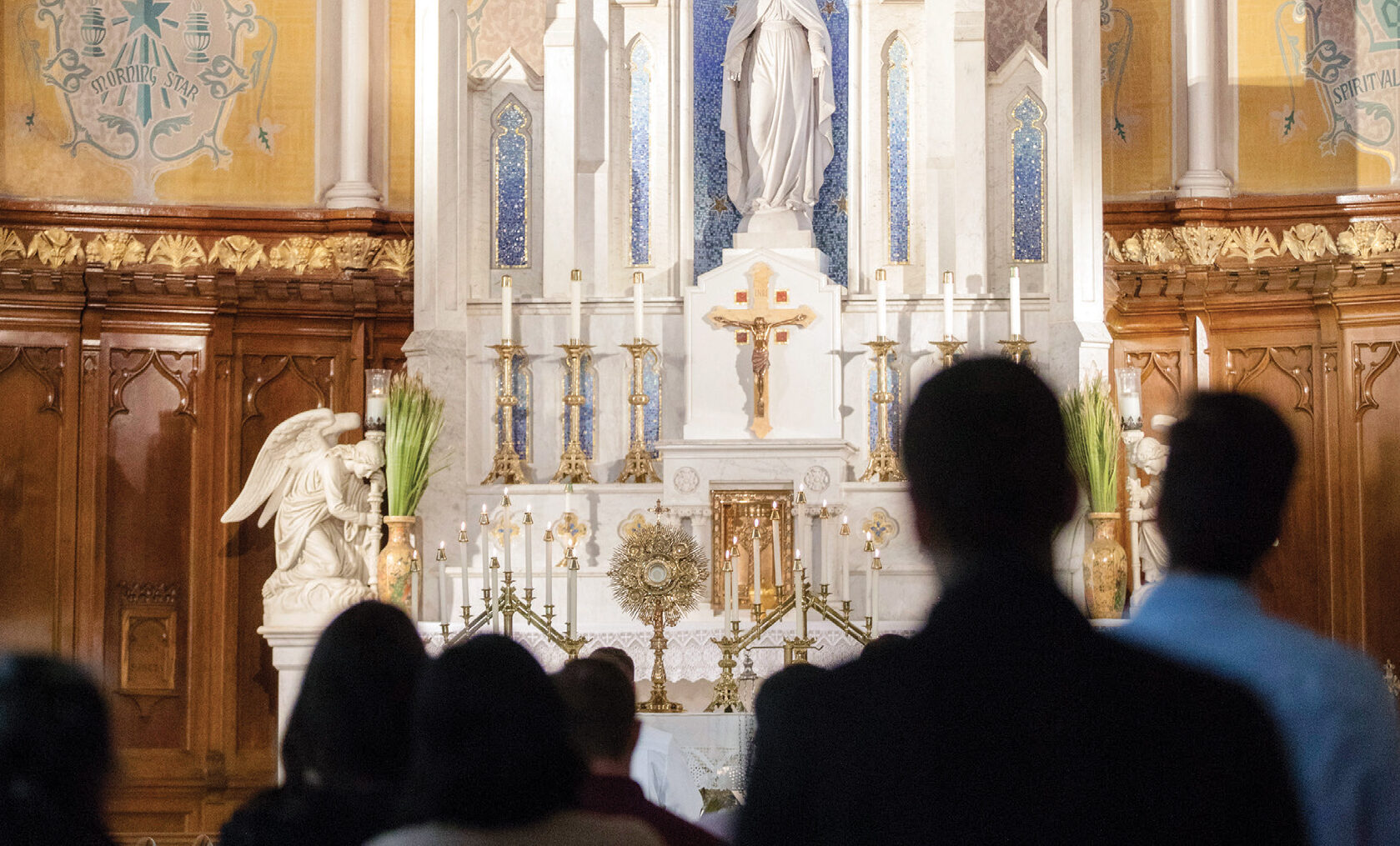While speaking at a confirmation retreat, I asked a student, “What is your goal in life?” He gave me the answer he thought I wanted to hear, which was, “To get to heaven.” I said, “Great answer! But statistics tell us that the majority of young people rarely attend Mass once they are confirmed. Statistics also tell us that only 4 out of 10 Catholics attend weekly Mass. So, why is getting to heaven and spending an eternity with God the goal, when the majority of Catholics can’t make it an hour at Mass?”
While this question gives pause, it also calls me to reflect on what my role is as a practicing Catholic. It is not to draw attention in a negative way to the fact that 4 out of 10 Catholics attend weekly Mass, but rather to remind me to: (1) be grateful for those 4 who are coming, and, (2) think about how we can support those 4 to evangelize the other 6.
People leave the Church for all sorts of reasons: disillusionment, anger, sadness, laziness, found something that is less challenging, etc. If I am being honest, there was a time in my life where I was close to being one of them. I had gone through something very painful and couldn’t see how God could possibly love me if He allowed that to happen to me. I was angry, but I went to Mass anyway. I knelt down in the back pew and I looked at the Crucifix in the front of the church and prayed. It was not my finest moment, but this is what I said:
I thought you loved me. How dare you allow this to happen to me? I go to church, I pray, I share You with others the best way I know how. And you allow this to happen to me? That’s not love. I don’t know what it is, but it’s not love.
Even writing that “prayer” horrifies me, however, it saved me from myself because He spoke back to me. Not in an audible way but to my heart. He said:
OK. I was born and came to earth. I ministered to people, I performed miracles, I taught people how to live and love. Then I went through every kind of pain a human being can suffer and was killed on a cross. After three days, I rose from the dead, defeating sin and death for you, out of love. What more do you want from me?
I was stunned. I said, “Good point. You win.”
The missing piece for me was not Christ, it was my misunderstanding of love and the meaning of a relationship with Him. When people leave the Church, I am convinced it is because they do not truly understand God’s love, the meaning of a relationship with God, nor do they understand the Church’s role in strengthening that relationship. It takes years to develop and solidify a relationship, but it takes only a moment to destroy that relationship. Relationships in our current culture are more fragile than ever. The fragility of the average person’s relationship with God is even more delicate because they only begin to understand His unconditional love when they are protected from pain. An example of this is in how many of us pray.
How do you pray?
For most of us, when we pray, our prayer is similar to a Christmas wish list where we run down the things we want to happen and the things we do not want to happen. Then, when it does not go our way, we throw our hands up and say, “Well, God must not love me,” or “It’s obvious that prayer doesn’t work.” I learned the hard way. I put all the weight on whether or not my prayers were answered the way I wanted them to be. I focused solely on the outcome of situations rather than focusing on knowing where Christ is, right now in my life. For many people, when the outcome does not match their desire, it’s a deal breaker, and that is when they tend to leave.
So, what do we do with the people who leave? Many times we say, “That’s too bad. I hope they come back around.” That response is not working so well for us as a Church. It reminds me of a story about a couple who were once engaged but then went their separate ways. They reunited years later. While reminiscing about what happened to their relationship, the man said, “I never understood why you left.” The woman responded, “I never understood why you didn’t come after me.”
Remember the “only four” discussed in the beginning of the article? This is where they come into play. We need to go after people. Not in a badgering kind of a way or a way that makes those who leave feel ashamed. Rather, let people know that they are missed. Allow for conversations to happen where people who have left are simply able to talk about why they left. We don’t need to be defensive, and we don’t need to convince them to come back on the spot. We just need to listen. Invite the person to come back, on their terms and in their time, and offer to accompany them on their journey. Help them understand God’s love, the meaning of a relationship with God and the Church’s role in strengthening that relationship. Our relationship with the ones who have fallen away will be their living example of what it means to have a relationship with the Church. If we do nothing, then that will be their experience with the Church. If we love and accompany, then their experience will open their eyes to what they may have been missing all along.
Chris Rogers
Director of the Office for Young and Young Adults Ministry
Published in the March/April 2023 issue of Catholic Life Magazine

